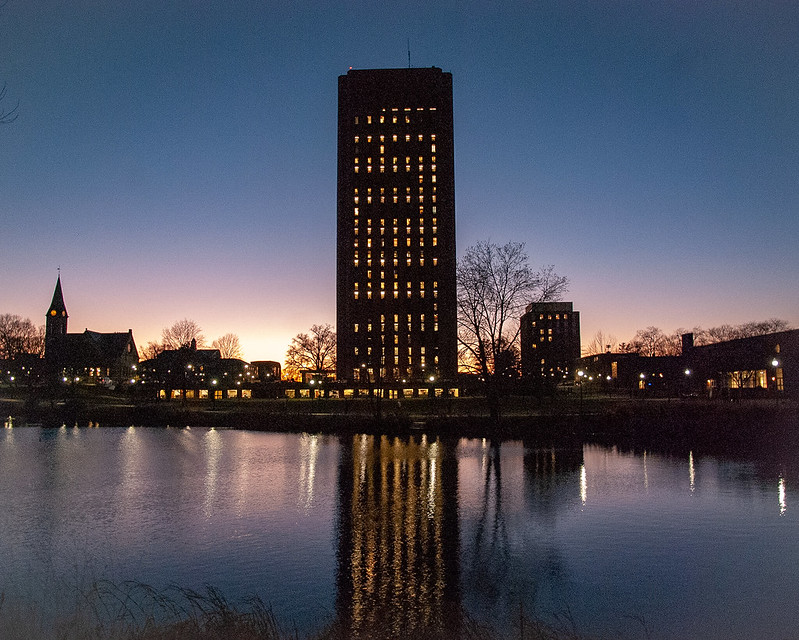During the strongest era of Reconstruction reform, Black voter registration peaked at over 90 percent. By 1940, that number dropped to three percent — how was this possible? The 14th and 15th Amendments were passed to both grant and protect voting rights for African Americans. Despite these major steps forward, white supremacist ideology was reestablished in the South and eventually erased the progress of Reconstruction altogether.
The failure to secure civil rights for African Americans immediately following the Civil War was a severe shortcoming that the United States still suffers from today. As we face modern challenges of racial equality in a post-Civil Rights Act America, it’s important we acknowledge the failures of the past to reconstruct the pieces of our broken nation.
When Abraham Lincoln was assassinated in 1865, he had yet to execute his vision of Reconstruction. His successor, Andrew Johnson, dealt serious damage to the progress of the era, and is frequently ranked as one of the worst presidents in American history. Johnson grew up in a poor Southern family and spent years climbing the political ladder before becoming Lincoln’s vice president. His upbringing inspired a level of Southern sympathy evident throughout his career.
After assuming office, Johnson began pardoning Confederate soldiers and sympathizers. Those with $20,000 or more worth of land would be pardoned automatically, while others had to appeal to Johnson directly. He granted these pardons freely, releasing thousands of Confederates back into society.
Johnson also attempted to veto the Civil Rights Act of 1866, which granted increased rights to African Americans. The Republican majority in the House of Representatives successfully overturned his veto, and the bill passed.
When the 14th Amendment was originally proposed later that year, it was designed to protect and solidify the rights granted in the Civil Rights Act. The amendment passed, but Johnson, continuing to vote like a Confederate sympathizer, urged legislatures to veto it.
In hindsight, President Lincoln’s choice of vice president was one of his greatest mistakes. When he chose Johnson, he trusted him to lead the nation in the event of a tragedy. Something tragic did happen, and Johnson’s presidency devastated Lincoln’s work toward national progress.
Many wealthy Southerners were able to reestablish themselves due to Johnson’s light punishment. Former Confederates entered office across the South and fought Reconstruction reforms at the local level. These efforts took form in the Black Codes.
The term “Black Codes” is an unofficial umbrella term, as the laws were passed in individual Southern states and varied in detail. Many states prevented Black people from voting through various loopholes, passed vagrancy laws that made it illegal to be unemployed and allowed convict leasing to pick up the labor that was voided by the end of slavery. These laws were meant to reinstate pre-war policies and continue to suppress African Americans.
We can observe similar laws in modern society. Reagan’s Anti-Drug Abuse Act of 1986 created mandatory minimum sentences for drug-related crimes, meaning any small charge would be subject to at least a 5-year charge. But these minimum sentences were much stronger on crack-cocaine charges, as Reagan lied and told the public that crack-cocaine was even more dangerous than regular cocaine. In reality, they’re the same. Crack-cocaine was cheaper to make and was therefore found in lower-class neighborhoods at a much higher rate.
These lower-class neighborhoods were often Black neighborhoods, and these Black neighborhoods also happened to be policed at higher rates. The legislation might have been passed in 1986, but it was eerily similar to the Black Codes as it continued the American tradition of disenfranchising Black people.
Another anti-Reconstruction tactic was violence. The Ku Klux Klan formed in 1865 as a group of former Confederates looking to uphold the status of white supremacy in America. They frequently kidnapped, terrorized and murdered Black people with the intention of preventing them from exercising their newly granted rights.
Germany has passed laws to outlaw any sort of Nazi symbolism, ideology or presence in a strong attempt to both come to terms with the past while simultaneously making a clear statement: never again. When the KKK makes a news headline today, it should bring nothing but shame across our nation. No matter how small their numbers might be, they are a symbol of our ugly past, and their horrible hatred is a factor of our ugly present.
It’s not just the Klan, either. The Proud Boys and the Oath Keepers are all a threat to democracy and domestic peace. Such groups with ideology so deeply rooted in evil white supremacy have no place in America.
How are we supposed to believe this country treats everyone equally when Confederate flags can be proudly and shamelessly displayed on the backs of trucks and the fronts of mobile homes? It might be coming 160 years too late, but it is still a necessity to root white supremacy out of this country for good. Maybe then, we can finally secure freedom and justice for all.
Owen Ray can be reached at [email protected]







